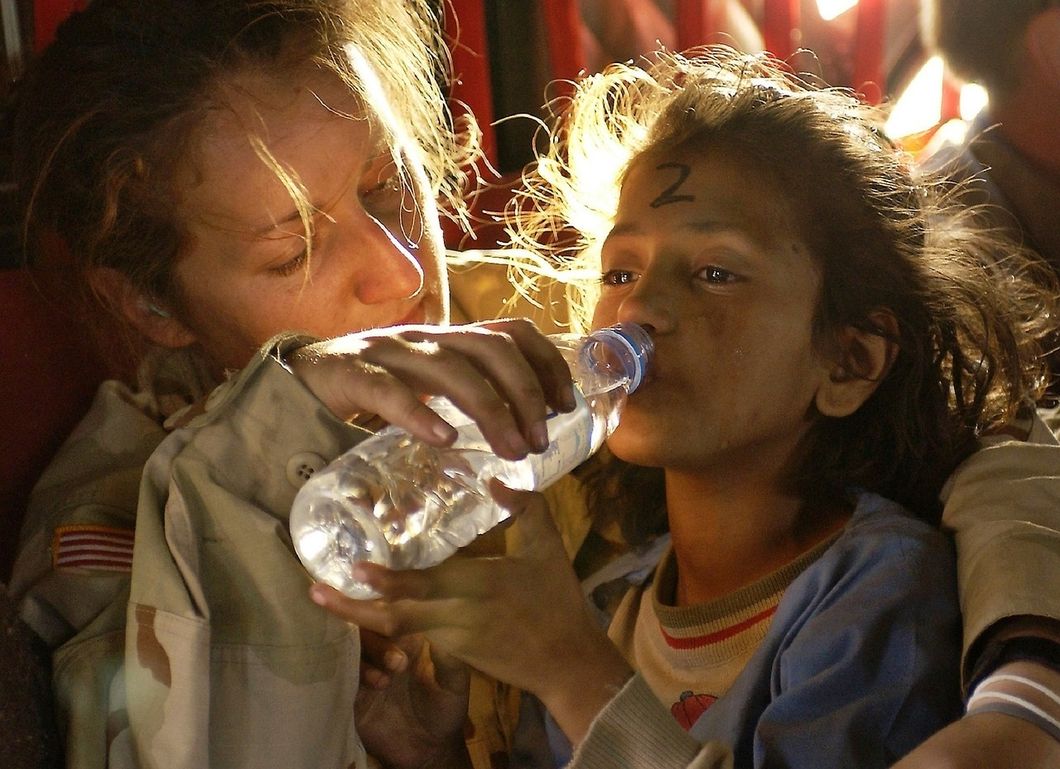Climate change is here and now. There can be no argument about its presence anymore, but that's not what this article is about. I think we all know that climate change is leading to increased overall global temperatures, species extinction, and more erratic weather patterns. If that doesn't convince you to do something, though, let me take a look at the social impacts that this phenomenon is going to have, and further argue the importance of climate change reversal efforts.
Most people I know that care about saving the planet are doing so not for the long run impact that it's going to have on humans. They do it because they care about nature and wildlife and saving the beauty that we so often take for granted. For some people, though, this just isn't motivating. While I'm not one of those people, I'm going to aim to take a stab at convincing you—with different goals in mind—why we need to be working to save our planet.
The first thing that comes to mind is the impacts that we're going to see due to rising sea levels. It doesn't take a genius to figure out that rising sea levels are going to mean less surface area for people to occupy. When this happens—and at the rate we're going, we're talking in "whens" and not "ifs"—people that occupy coastal spaces are going to be moving closer and closer towards the center of the land. Now, add in an exponentially increasing population, and I assume you can see a problem occurring. To make matters worse, humans have a long history of starting wars over such matters as who is allowed to live where. For countries like the United States, maybe there will be fewer problems in the beginning, but there are multiple countries that are predominantly island chains. This is a phenomenon that could wipe out whole countries, and those individuals will need a place to go. It's inevitable that countries will begin to fight over who deserves the land, and it's doubtful that we'll do so in a manner that doesn't involve death.
Another big impact of climate change is going to be its effect on minority communities. One of the worst things about this problem is that the most damage is being done by the small percentage of individuals with the largest amount of wealth (a problem in and of itself). The consequences of this damage, however, are going to be felt by those who have the least control over their situations. The impacts of climate change (i.e. asthma, cancers, increased prices of fuel, decreased availability to clean water) are going to impact these individuals the most, and they're not going to have the resources to take care of their basic needs when things become dire. You know who will though? The large companies who are giving money to lawmakers to pass bills that allow them to continue their pollution of our air and water. While you yourself may not be a member of a minority community who will experience these impacts first, you will be part of the communities who have to start fighting for resources once the wealthy continue to use up the available resources with reckless abandon.
While I hope I've convinced you, however briefly, that climate change is going to have a pretty large social impact in the long run, I hope that you also see something needs to be done. You may say (and I really hope you don't) that the individuals that are going to be seeing these impacts first should be doing something to contribute. The funny thing about how our economy is set up, however, is that solutions to these problems are actually being financially discriminated against—again by those with the money and power. Low-income communities don't have the resources to put in things like solar panels and wind energy. They often can't afford to do things like driving a car that runs on electricity rather than gas or support more expensive companies that are putting forth efforts to work more sustainably. That's where the diminishing middle class comes in, though. I know that sometimes it takes more time to separate out the recycling or look into the companies you're buying from, but as those that are financially able to spend a little here or there, it is our responsibility to make conscious and informed decisions.
Now is the time to start voting for and vocally supporting legislators who want to equalize resources among social classes and do something good for our planet. At first, the actions that we need to start taking aren't going to be easy and they may not always support our savings plan for this year's vacation to the Bahamas. In the long run, however, you are demanding that humans be more conscious of their consumption. You are telling the minority communities with little community over their quality of life and health benefits that you support them. We need to stop supporting large companies that refuse to take financial or moral responsibility for their actions. If we don't start making these changes now, our beloved planet may very well be a place that cannot sustain the lives we have worked so hard to make for ourselves. This isn't an issue of should we do something. It's an issue of will we choose to save our planet or sit idly by as we destroy it and our future?



















